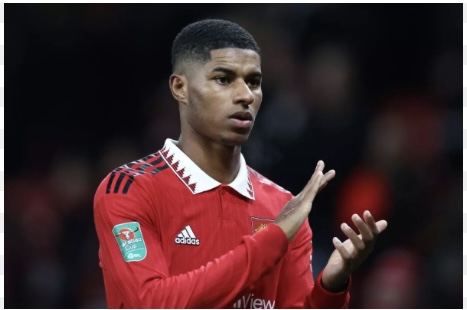Just a month ago, Marcus Rashford wouldn’t have been on Barcelona’s radar. The Spanish giants, plagued by financial turmoil, had just been blocked from signing Spain international Nico Williams. Athletic Bilbao, fed up with Barcelona’s unrelenting pursuit, even held talks with La Liga president Javier Tebas, who confirmed the Catalan club was in no position to complete the deal due to its financial constraints.
Barcelona’s sporting director, Deco, had publicly expressed interest in Williams, whose release clause is around €60 million. The player was reportedly unsettled, but Barcelona’s inability to comply with La Liga’s strict financial regulations meant they couldn’t proceed. These rules, linking squad spending to actual revenue, were reinforced after Athletic exposed a missing €100 million in Barcelona’s projected earnings—an amount supposedly tied to VIP seat sales in a stadium that doesn’t yet exist.
Williams has since signed a new 10-year contract with Athletic. Meanwhile, Barcelona remains unable to explain how it will fill the €100 million gap in its accounts. Against this backdrop, Rashford, now 27, emerges as a more feasible target. After falling out of favour at Manchester United, and possibly spending 18 months out on loan, his long-term future depends heavily on his form.
Barcelona, though still La Liga champions, are no longer the transfer juggernauts of old. Their only paid signing this summer—Espanyol goalkeeper Joan García for €25 million—has yet to be registered due to wage cap restrictions. Unless the club clears room on the payroll, García can’t be added. There are even talks of moving on captain Marc-André ter Stegen, though that, too, is complicated.
The same registration hurdles are likely to apply to Rashford if the loan deal goes through. Barcelona’s financial limitations meant they couldn’t even consider Liverpool’s Luis Díaz, valued at €80 million. But Rashford, viewed as a marketable name with proven European pedigree, represents a lower-risk option—especially with United eager to offload him.
Rashford has made his interest in Barcelona clear in recent interviews with Spanish media. Yet the key sticking point remains his £385,000-per-week salary, and how much of that Barcelona will be willing—or able—to cover. All parties appear boxed in: United are saddled with an expensive contract handed out after Rashford’s standout 2022-23 season; Barcelona need talent without major spending; and Rashford needs a fresh start.
Barcelona, despite their prestige, have sold off large chunks of future revenue—like 25% of La Liga TV rights for the next 25 years—to fund their current squad. The delay in moving to their new stadium further jeopardizes any short-term income, especially the expected €100 million from VIP seating. Still, the club’s famed academy continues to produce stars like Lamine Yamal, Gavi, Pau Cubarsí, and Pedri, who have kept the team competitive.
Rashford, once Manchester United’s academy poster boy, now finds himself in a team where homegrown talent dominates and a place in the front line is far from guaranteed. The competition will be fierce.
Yet, for Rashford, this move could be the lifeline he needs—Champions League football, a fresh start at a globally iconic club, and a system suited to his playing style. In a different era, he might have been Barcelona’s headline summer signing, backed by a blockbuster fee. Instead, this is a more subdued, strategic transfer—a reflection of current realities for both the club and the player.
For now, Rashford appears to be the one coming out ahead. But as ever in football, fortunes can shift in an instant.



